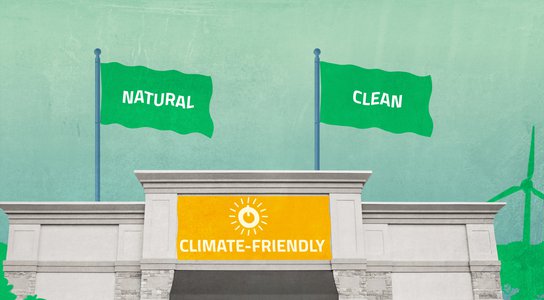Pressed to cut carbon emissions, Shell announced investments in faraway forests that absorb carbon dioxide and allow participating customers to ‘drive carbon neutral’. Sounds good, doesn’t it?
Too good to be true? We think so. Shell’s drive carbon neutral programme says it will ‘offset your fleet’s unavoidable carbon emissions through the purchase of carbon credits from a portfolio of carefully chosen nature-based projects’. But the use of carbon offsets – schemes intended to remove or reduce emissions, like tree planting or wind power – to justify continued greenhouse gas emissions is a false solution to the climate crisis.
Companies are flocking to offsets, wielding them as environmental credentials while using them as a permit to pollute. Offsets are being used by some of the biggest polluting industries as substitutes for the direct emissions cuts urgently needed to prevent catastrophic global heating. This dependence on offsetting projects, fraught with unreliable absorption calculations and in some cases devastating local impacts, distracts from meaningful climate action.
Not all offsets are equal
The offsets model rests on the idea that carbon emitted in one part of the world will be reabsorbed in another. In practice this means wealthier companies in the Global North have increased demand for offset projects established in the Global South, where the majority of land targeted for carbon offset opportunities lies. This has led to land grabs in areas where Indigenous rights are not well recognised, as well as disadvantages for poorer countries to account for their own emissions.
The model also relies on an unproven assumption. It supposes that emissions derived from fossil carbon (predominantly CO2 from the burning of coal and other fossil fuels) can be stored in equal and limitless capacity as biological carbon (in forests, soils, and oceans), but this ‘carbon interchangeability’ is false, according to dozens of scientists.
Companies claim to offset emissions by purchasing and ‘retiring’ carbon credits – but the ways of verifying credits lacks consistency or strong governance. Multiple bodies certify credits, with different standards and levels of accountability, meaning the risk of poor-quality credits is high. There’s also the risk of offsets being double counted, when two or more actors claim the same credit – creating the false assumption that twice as much pollution has been compensated, entirely undermining the offset.

Does it make a difference, and does it last?
For an offset to have value, it must demonstrate that it has generated additional emissions reduction than would otherwise have occurred (often by advancing projects that would not take place without carbon finance). This notion of ‘additionality’ is often difficult to assess and designated ineffectively, a residual issue for the offsets model.
When offsets are claimed for projects that would have happened anyway, there’s a problem. For example, JP Morgan, Disney, and BlackRock, in partnership with The Nature Conservancy, funded offset projects appearing to preserve US forestland. A 2020 Bloomberg investigation claimed that the project areas were already part of well-protected forests.
A parallel concern is longevity: it’s impossible to guarantee the permanence of natural offsetting projects. The majority of forestation projects are created to last 30 years – after which the trees may be harvested, and the carbon they sequestered, released. When forest fires tore through the north-western USA in 2021, they burned up the offsets of Microsoft and others. Such extreme weather events are increasingly likely in a warming world, jeopardising the timelines of forest projects estimated to need 100+ years of sequestration to approach equivalency with carbon emissions.
The corporate offsetting fallacy
Renewed public focus on climate action around the COP26 summit saw a spike in companies pledging to achieve “net zero” emissions. But how do they propose to get there?
While the claims tend to be vague, almost half of the world’s largest companies have indicated they plan to use offsets to reach this goal. A 2022 study of the transparency and integrity of climate pledges by 25 major companies found that 19 intend to use offsets to claim carbon neutrality, with the majority banking on CO2 removals through nature-based solutions which the study finds are unsuitable for individual offsetting claims.
Companies cannot continue to use offsetting as a crutch for their climate responsibility claims, because it simply isn’t viable. There isn’t enough land on earth for all companies and countries to counteract their emissions in this way. For just four oil and gas producers (Shell, bp, TotalEnergies, and ENI) to achieve their net zero pledges by carbon offsetting could require foresting an area of land twice the size of the UK, according to Oxfam.
Yet the use of offsetting to suggest that fossil fuels can be environmentally friendly is well underway. French oil and gas giant TotalEnergies labelled a shipload of fossil gas as “carbon neutral” after purchasing carbon offsets from projects including forest protection in Zimbabwe. Experts say it will do “virtually nothing to decrease carbon dioxide in the atmosphere” and falls far short of neutral.
Where to from here?
Immediate, concerted action is needed to cut emissions to avoid the worst impacts of climate change. The prevention of biodiversity loss and strengthening of Indigenous land rights are crucial components – but do not compensate for delayed action by business. Offsetting projects cannot continue to serve as cover for companies to maintain emissions and unsustainable practices.
Companies claiming to cancel out continued emissions through offsets are weaving a dangerous fiction, delaying the urgent task at hand. It’s time governments pass laws to strengthen accountability for companies’ carbon impacts and require companies to make the drastic emissions cuts necessary to prevent climate breakdown.
Author
-
Henry Peck
Senior Campaigner - Digital Threats


![VCMIsimple4[60].png](https://cdn2.globalwitness.org/media/images/VCMIsimple460.2e16d0ba.fill-544x300.png)